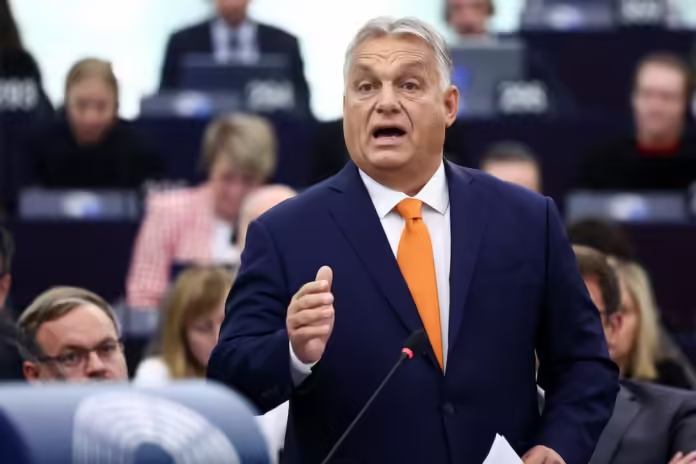European Commission President Ursula von der Leyen sharply criticized Hungary’s foreign policy on Wednesday, accusing the country of jeopardizing European security through its close ties with Russia and China. In a strongly-worded speech at the European Parliament in Strasbourg, von der Leyen expressed concerns about Hungary’s reluctance to align with its EU partners on key issues, particularly regarding the war in Ukraine.
Von der Leyen criticized Hungarian Prime Minister Viktor Orbán’s government for maintaining strong relations with Moscow and Beijing, arguing that Budapest’s actions undermine collective European security. She condemned Hungary’s failure to support Ukraine against Russia’s invasion and its moves to strengthen economic and diplomatic ties with both Russia and China.
“The world has witnessed the atrocities of Russia’s war, yet some still blame this war not on the invader, but the invaded,” von der Leyen said. Drawing a comparison to Hungary’s failed 1956 uprising against Soviet rule, she questioned how some could blame Ukraine’s desire for freedom for the conflict.
Orbán, who was present at the debate, rejected the comparison, calling von der Leyen’s remarks surprising and reiterating his stance that a ceasefire in Ukraine is needed. He dismissed parallels between Hungary’s 1956 revolution and Ukraine’s current situation.
Von der Leyen also highlighted specific actions by the Hungarian government, including easing visa restrictions for Russian and Belarusian nationals and allowing Chinese police officers to operate in Hungary. These moves, she argued, posed security risks not just for Hungary, but for the entire European Union.
She further criticized Hungary’s ongoing reliance on Russian energy, stating that such actions undermine EU efforts to reduce dependency on Moscow. “There can be no more excuses,” von der Leyen declared, emphasizing that member states must contribute to Europe’s energy security.
The clash reflects ongoing tensions between Hungary and EU institutions, particularly over Orbán’s domestic policies and foreign alliances.



